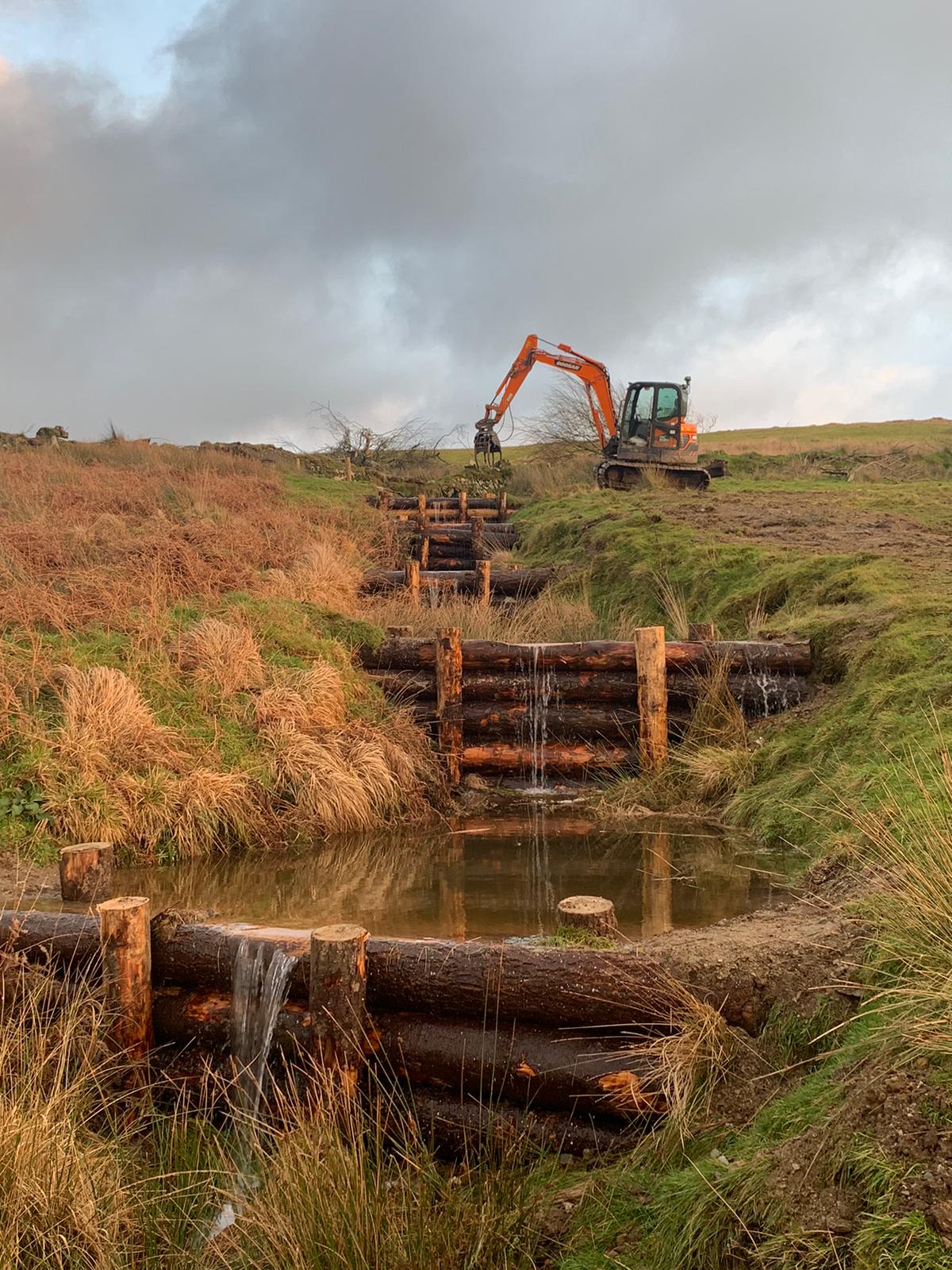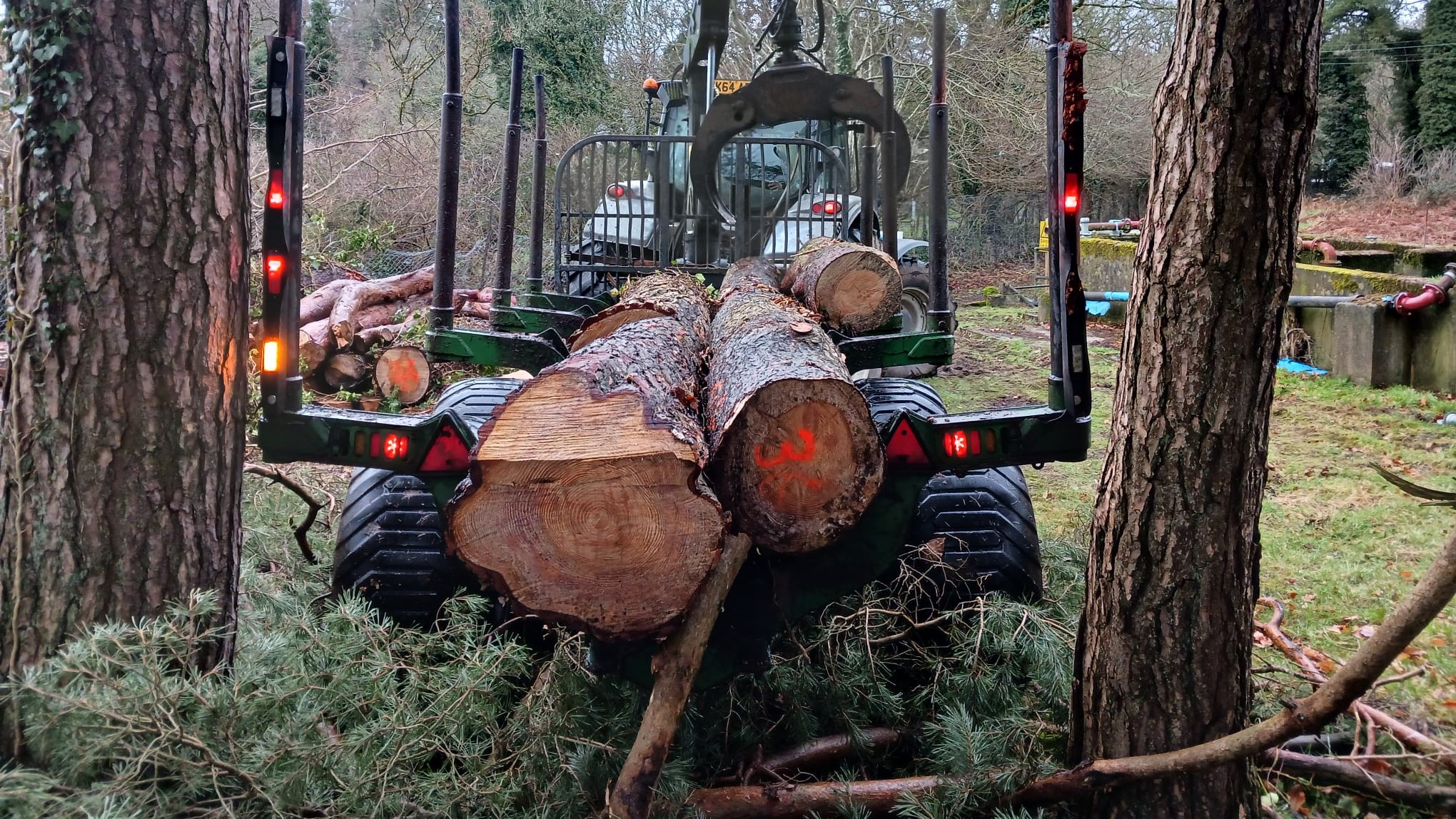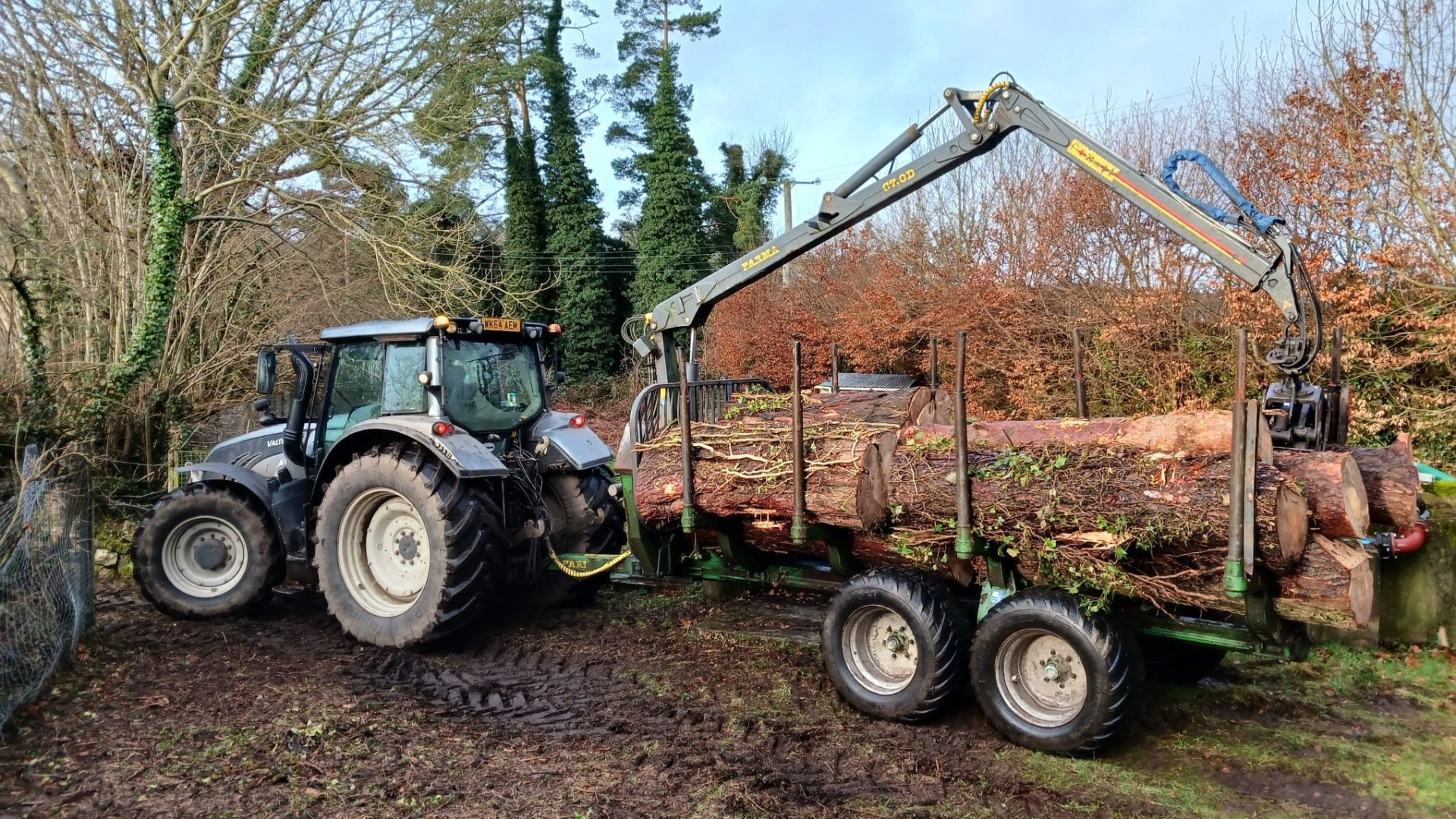
South West Water is embracing a truly sustainable approach with the reuse of conifer trees from its wastewater sites in Devon.
Its teams have been working at two of the company’s treatment works in recent months to remove large conifer trees as part of biodiversity improvements, with further trees to be removed over the coming weeks.
The trees that have been removed will be replaced with native broadleaf species such as oak, hazel and rowan that offer much greater benefits to birds and other species.
The logs from the cut conifer trees will be recycled for use in peatland restoration work at two South West Water sites – Burrator Reservoir in Devon and Park Pit in Cornwall. This work is being carried out by the South West Peatland Partnership, a £13 million project led by South West Water, which is delivering peatland restoration in the South West of England.
Barney Agar, South West Water’s Dartmoor Project Coordinator, said:
“At South West Water, we are paying real attention to which species are found on our sites and how we can make these sites better for wildlife. As part of this, we are working to raise biodiversity standards on all our sites across the region.
“Many species of conifer are non-native and provide limited benefits to nature, which is why we are removing them. They will be replaced by native broadleaf species, which provide a greater amount and variety of food sources for wildlife and insects, such as acorns and leaves from oaks and berries from rowan, as well as better nesting and shelter opportunities.”

The wood removed from the sites will be used by the South West Peatland Partnership to create leaky wooden dams, or timber rounds, which help to trap water in the environment, restoring dried and degrading peat bogs. This work will ultimately help prevent run-off from the land into the watercourse, improving water quality in the area and trapping carbon in the landscape.
Carolyn Cadman, Director of Natural Resources at South West Water, said:
“It’s fantastic to be able to plant native broadleaf species and at the same time to reuse the removed logs in a sustainable way. I’m proud of the great work that the Natural Resources team at South West Water and the South West Peatland Partnership are carrying out to protect and enhance the natural environment for now and for years to come.”
The work is a trialled approach to biodiversity improvements, which could be rolled out more widely across the company’s sites if successful.



